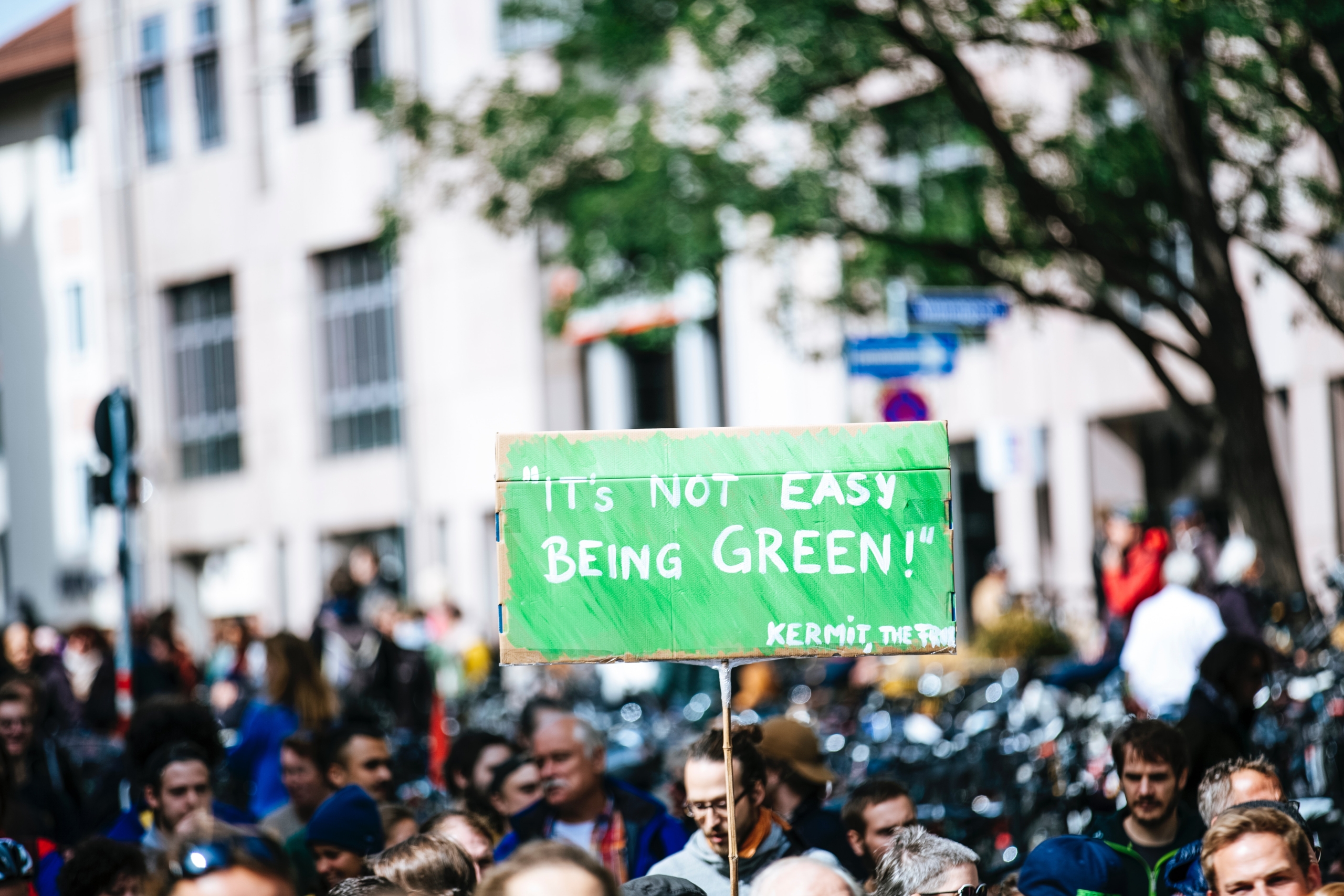
Climate change is a major long term threat to our world. Yet, we find very few evangelical Christians voices or mass engagement on this issue. Why this disturbing gap? To explore this question, Curtis is joined by Bruce Huber who teaches about environmental law as Professor of Law at the University of Notre Dame. Together, they explore the deep reasons why many Christians struggle even to make proper sense of climate change.

This excerpt has been edited for length and clarity.
CURTIS CHANG: Bruce, we’ve been talking about the importance of Christians getting involved in stewardship – not just stewarding our environment, but our human ecosystem of institutions. We care about fulfilling God’s mandate to care for this world. And that’s something we can do alongside anyone. In fact, we need to join and contribute to secular institutions.
For this last segment I want to explore what Christians specifically can bring to the table. What distinctly Christian virtues can we contribute to the issue of climate change?
BRUCE HUBER: That’s exactly the right question to ask.
“The greatest of these is love,” right? I think it’s worthwhile to contemplate how we might better exercise love as Christians given the climate crisis. The story of the Good Samaritan can be helpful here.
When Jesus is asked to describe love, he paints a picture of a Samaritan loving despite a lot of social distance. I think that’s a critical way to conceptualize love in a modern era, in which the impacts of climate change are global and are playing out over really long timescales. I can’t see the person that I’m harming.
In the same way, Curtis, these days some Christians don’t want to buy fast fashion products produced by slave labor and child labor. And that’s all for the good. And what’s remarkable about those instances is that those buyers don’t know and can’t see the people they are advocating for. In the current global market, we seldom see the people that are impacted by our decisions after all. But they’re still willing to exercise love and compassion for those people across a great degree of social distance.
In the case of climate, many of those people impacted by our decisions don’t even exist yet, right? We’re talking about the future.
CURTIS CHANG: Yeah, they haven’t been born yet.
BRUCE HUBER: That’s right. And I think we need to better help the church think in these terms – that we display the virtue of love by very deliberately thinking about what it would mean to love people around the globe and 100 from now. What can we do to enable them to see the goodness of God’s creation in a really thoroughgoing way, even though we don’t know them?
CURTIS CHANG: I love that vision. I mean, this strikes me as a holistic pro-life agenda. It can be about addressing threats to the unborn — not only the threat of abortion, but the threat of a devastated world, or a less hospitable world than it otherwise could be.
And we should be baking this consideration into our thinking, our prayers, our decisions. Millions of people, not yet born, will be affected by the decisions we make individually and collectively and institutionally.
Bruce, can you end us with hope? Hope is another core Christian virtue, and a lack of hope tends to shut down progress faster than anything else, right? I see that in myself in other Christians. Sometimes you want to throw your hands up. “There’s nothing we can do, so let’s not think about it. It’s hopeless.”
BRUCE HUBER: Yeah. And we tend to want to apply hope to some hook that indicates to us that hope is reasonable. But with climate change, we don’t know where that hook is right now. We don’t know where the good news is going to come from. But that’s why I think it’s all the more critical for the church to simply say, “We trust a God that is so big that this problem is not too big for him.”
We serve a God who, in scripture, comes to the aid of an army that he weaned down to 300 people. They had no idea how they could face the Assyrians by their own strength. And the disciples had no idea how their leader, crucified in front of them at Gethsemane, could be the deliverer they thought he was.
In the face of those kinds of odds, we are the people who say, “We believe that God somehow, in a way we can’t see or understand, is capable of addressing this problem.” I think that applies just as squarely to climate change as it does to human sin or all manner of evil, shortcoming, and failure that we face.
CURTIS CHANG: Which compels us to be people who lean more and act more in this world, precisely because there is hope, and hope is the fount of knowledge.
Hope drives knowledge because it declares there’s something meaningful to know. And it drives action because we believe, somehow, that God can magnify our actions beyond what is humanly possible.
BRUCE HUBER: I love that.
CURTIS CHANG: Love and hope — two great words to end on.
Photo by Markus Spiske on Unsplash
The Good Faith podcast comes out every Saturday. Listen and subscribe here or wherever you listen to podcasts.
Curtis Chang is the founder of Redeeming Babel.